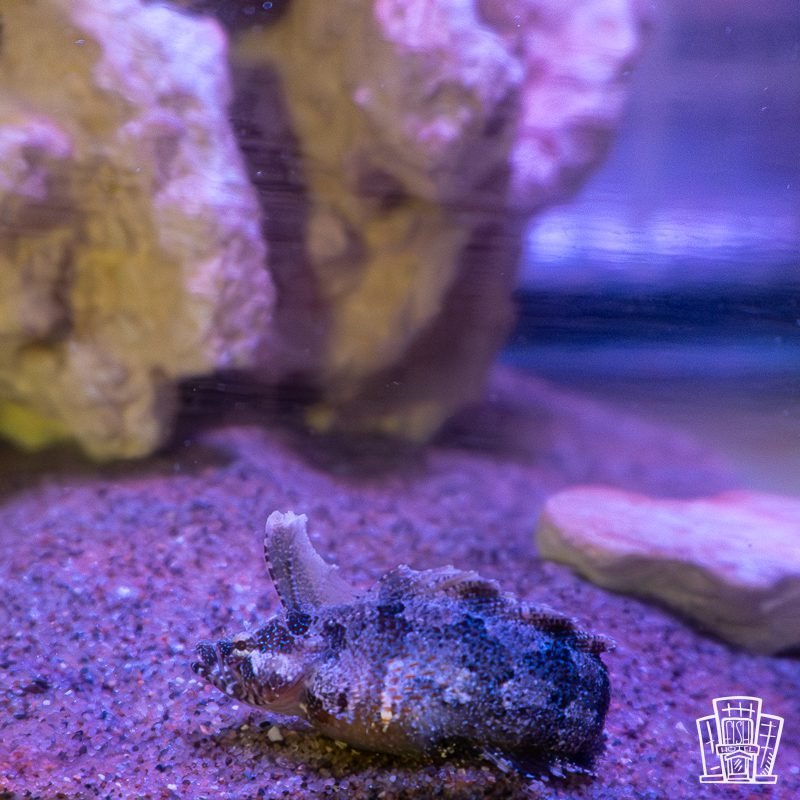Description
- Scientific Name: Paraclinus marmoratus
- Common Names: Rhino Blenny, Marbled Blenny
- Maximum Length: 3.9 inches (10 cm)
- Minimum Aquarium Size: 20 gallons (76 liters) for a single fish; 30 gallons (113 liters) or larger for pairs to support their territorial behavior and perching needs.
- Foods and Feeding Habits: Carnivorous, feeding on small crustaceans and invertebrates in the wild. In aquariums, offer frozen mysis shrimp, brine shrimp, or high-quality marine pellets. Feed small amounts 1-2 times daily to mimic their foraging habits.
- Reef Safety: Reef-safe; they do not harm corals or invertebrates, making them suitable for reef tanks.
- Temperament: Peaceful but territorial toward similar blennies. Best kept singly or in pairs with ample hiding spots. Pair with non-aggressive tankmates like gobies or small wrasses.
- Description: The Rhino Blenny is a captivating addition to marine tanks, valued for its unique look and engaging behavior. Its slender body is mottled with brown, tan, and white patterns, often with a white bar from eye to shoulder and a horn-like dorsal fin ray. Native to the Western Atlantic, from southern Florida to Venezuela, they inhabit seagrass beds and coral reefs at depths of 0-6 meters, often perching on sponges or rocks. Hobbyists note their bold personality, often watching aquarists fearlessly, but they may hide during acclimation, requiring a tank with sandy substrate and live rock for comfort.
Fun Facts:
- Their horn-like dorsal fin ray, which inspired the “Rhino” name, sways gently to mimic seaweed, deterring predators in the wild.
- In aquariums, they often “slither” along the tank bottom, moving more like a snake than a typical fish, delighting observant hobbyists.
- They can rapidly change their mottled pattern to blend into algae or coral, a camouflage trick that shifts in seconds under stress.




